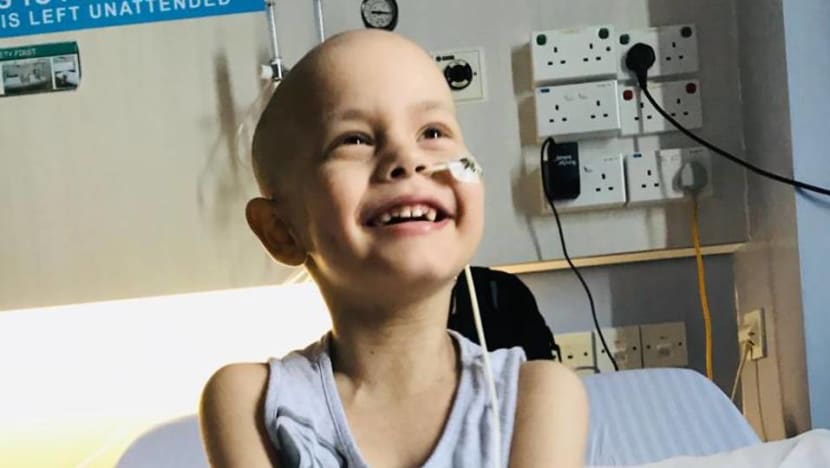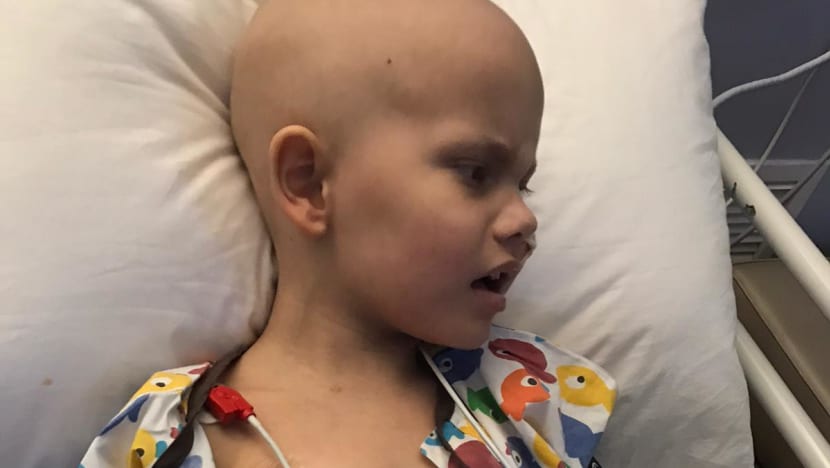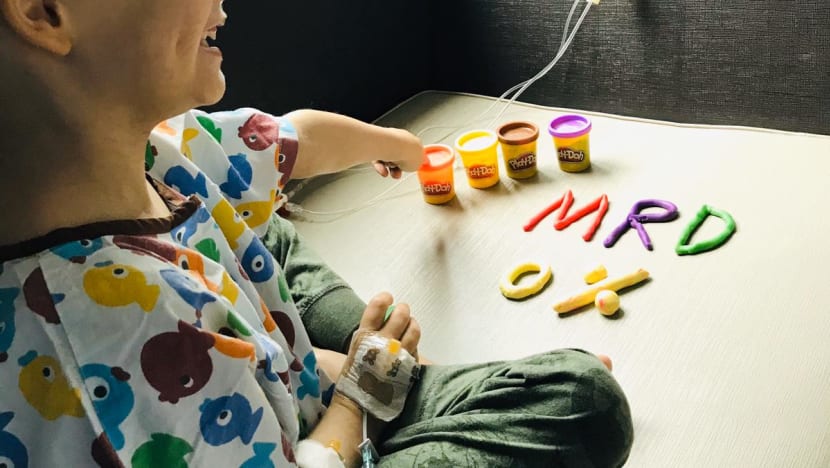No cancer cells detected: First major step to recovery for British boy in Singapore for experimental treatment

Oscar Saxelby-Lee is still smiling despite undergoing cancer treatment in Singapore. (Photo courtesy of Oscar's family)
SINGAPORE: No cancer cells have been detected in the blood of a British boy who is undergoing experimental treatment in Singapore for an aggressive form of leukaemia that would have killed him in months.
First test results that came in late Wednesday night (Jan 15) show that five-year-old Oscar Saxelby-Lee is now MRD (minimal residual disease) negative, which means there are no cancer cells in him.
His mum Olivia told CNA it represents the first major step towards a full recovery.
It is the first time his body has been free of cancer cells since he was diagnosed with acute lymphoblastic leukaemia in December 2018.
All forms of treatment in the UK had failed, including intensive chemotherapy and a stem cell transplant. He had run out of options there.

But in November last year, Oscar arrived in Singapore for an experimental treatment at the National University Hospital that only one other child in the world has had.
Olivia said while it was still “early days” for Oscar, the latest results are hugely promising.
“This is more promising than any other treatment so far because this is the first time he has been (MRD) negative,” she explained.
It was only on Wednesday afternoon that Oscar had gone through yet another surgery.
“We are trembling with pride. Our hearts were torn only yesterday afternoon to then groundbreaking news that patched us up again,” Olivia said on Thursday.
“We are unbelievably proud of everyone who have helped us get here and cannot thank them enough.
“Oscar is beyond happy. He’s ecstatic that he’s one step closer to being well again.”
The five-year-old will need a bone marrow transplant for his next stage of recovery, his mum said.
“His blood is clear from leukaemia but as his marrow recovers the (cancer) cells can find a way back in so that’s why we are also transplanting him - for a long-term cure,” Olivia said.
“We are staying optimistic because it’s the only thing we’ve got left and we have faith.”
READ: British boy, 5, in Singapore for experimental treatment for "uncontrollable" cancer
OSCAR’S BATTLE
The treatment in Singapore was Oscar’s last hope. All other treatments had failed to rid Oscar of the cancer cells - he was still MRD positive even after a stem cell transplant.
The boy from Worcester, England had flown here after crowdfunding £500,000 (S$885,000) for a new form of treatment, in which immune cells from a patient’s blood is drawn and equipped with a Chimeric Antigen Receptor (CAR-T).
The receptor binds itself to a specific protein on the cancer cell and activates the CAR-T cells to kill the cancer cells.
This particular form of CAR-T treatment is different and more difficult because the leukaemia cells resemble Oscar’s immunity system, Associate Professor Allen Yeoh, head of paediatric oncology at NUH, explained previously.

This is compassionate treatment, which means it is not even in the medical trial stage yet.
Oscar was given the new cells on Christmas Eve, and after more than three weeks of gruelling fevers, lethargy, countless injections and blood and platelet transfusions, his family has received their best possible set of results.
“(It has been) one huge rollercoaster that hoops every time things begin to go well,” Olivia said.
“We are on a journey like no other that keeps swinging curve balls but Oscar is smashing it and doing amazingly well."














